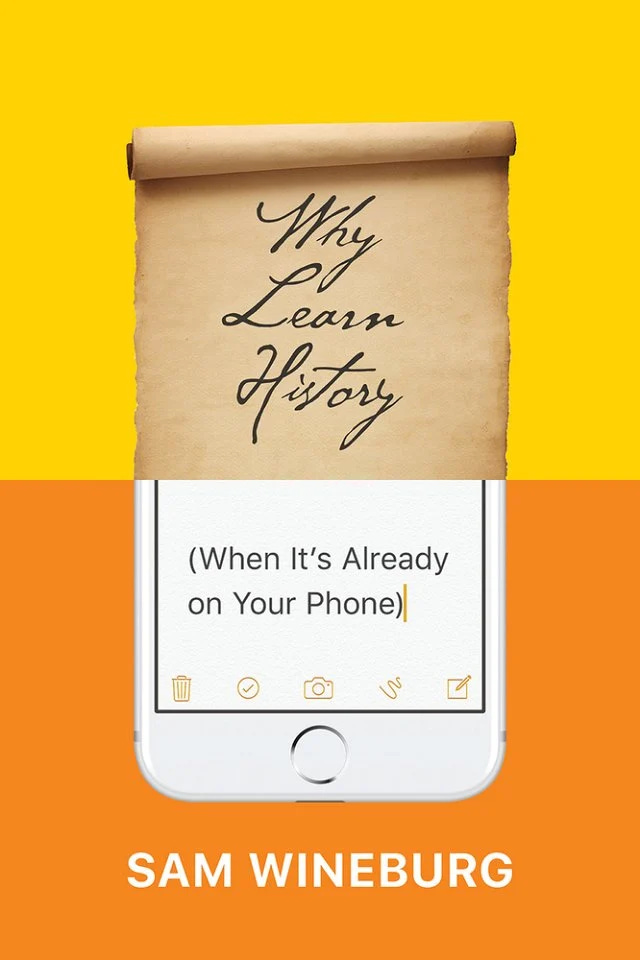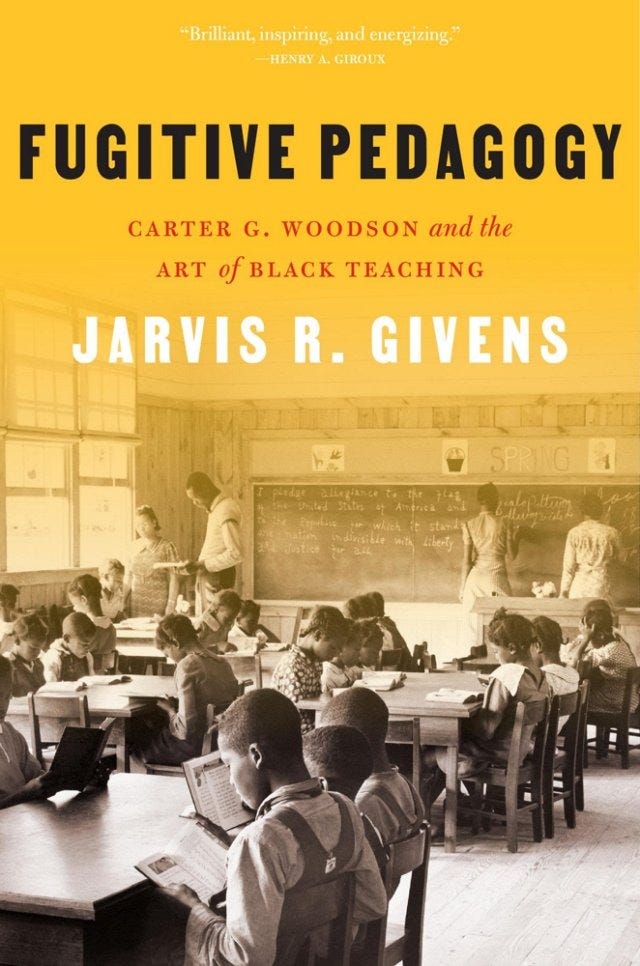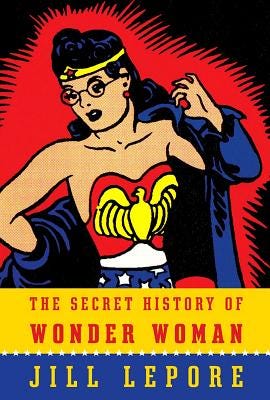Further Reading: A syllabus for the resistance
As educator Jonny Adler reminds us, "even under oppressive regimes, people still find ways to live their lives and do beautiful things."
At the social justice-oriented school where I met educator Jonny Adler, the subject of this recent In Tending interview, we designed our entire middle school curriculum around questions like “How did people like us resist oppression in the past?” and “What can we learn from them?” We studied everything from the poetry of Phyllis Wheatley, an enslaved Black woman who became famous during the Revolutionary War era for her innovative artistry, to the radical forms of protest practiced by the Puerto Rican Young Lords, who took over a hospital in the South Bronx in order to agitate for better healthcare for their community. The thrust of our curriculum was to show students that often, the blueprints for building a better, fairer future lie in the past.
We also taught them that this is why people who wish to oppress us go after the history books first.
Not every school can be like our school. Many educators across the US are already under fire for teaching history in this way. Many schools and libraries are experiencing the chilling effect of book bans. Many students will need or choose to be home-schooled in the next few years to avoid the bullying that may take place as protections for vulnerable groups (i.e. trans youth) are rolled back.
I see it as the duty of educators who have the privilege of safety to open-source our resources for resistance. It’s up to all of us in the next four years, not just K-12 educators, to make sure that all young people feel empowered to apply the lessons from the past to building a better future for everyone.
To that end, here’s a syllabus of sorts from Jonny, featuring the texts that have taught him how to teach real, hard history. As he says, a good history book will tell of two important, opposing truths: “both of the horrifying lengths that humans sometimes go to in order to preserve their power—and that even under oppressive regimes, people still find ways to live their lives and do beautiful things.”
Please share this list widely with the grown-ups in your life, and the cool kids too. We’d also love to hear from you in the comments if there’s anything you’d like to add!
Teaching History
James Loewen, Lies My Teacher Told Me. First published in 1995, Loewen’s book flips the script on traditional history education. Loewen’s thesis is essentially that history is far more interesting and complex than our textbooks would suggest. He starts by tracing the traditional narrative offered in mainstream textbooks, then brings in primary sources and contemporary scholarship to complicate the narrative. One notable erasure he points to is the later life and activism of Helen Keller, who (Loewen argues) textbooks tend to portray passively: as a child who miraculously learns sign language through the efforts of her teacher. Those textbooks then largely ignore what Keller chose to say and do as an adult, when she earned her bachelor’s degree at Radcliffe College, advocated passionately against war and lynchings, and supported birth control and schools for the blind. Lies My Teacher Told Me is a great read for adults, and there’s also now a version for students.
Sam Wineburg, Why Learn History (When It’s Already on Your Phone). Wineburg makes a compelling case for historical thinking in an increasingly digital world. With so much information at their fingertips—and much of it inaccurate or misleading—young people need to develop strong digital literacy skills that will allow them to sift through a messy internet and find something like the truth. This has only gotten more complicated in the age of large language models and generative AI, and I’m curious how Wineburg addresses those changes in his 2023 book, Verified. See also: teaching materials from the Civic Online Reasoning curriculum by the Digital Inquiry Group.
Sarah Maza, Thinking About History. I read Maza’s Thinking About History in a historiography class I took through the Gilder Lehrman Institute. Historiography is the (quite meta) study of what history is, and it traces how and why we do it now and have done it in the past. I love how Maza organizes the book around questions (“the history of whom?”; “the history of where?”; “the history of what?”) , making it clear through the very structure of her book the extent to which history is a discipline built on controversy and curiosity.
Understanding the Past, Present and Future of Education
Jack Schneider and Jennifer Berkshire, A Wolf at the Schoolhouse Door, plus their amazing podcast, Have You Heard. This book is a potent blend of education history, journalism, and advocacy that honestly reads something like a horror novel. In it, Schneider and Berkshire trace efforts on the far right of the American political spectrum to dismantle public education as we know it. As efforts to privatize education gain traction around the country, this book makes a strong case for the ongoing importance of the “common school” in the 21st century.
Natalie Wexler, The Knowledge Gap. Natalie Wexler brings together history, scholarly research, and old-fashioned journalism to argue that the root of much of the inequality in American K–12 education is an overemphasis on decontextualized “reading skills” in the elementary grades that denies young people—particularly children of color—exposure to the wide swath of knowledge and ideas that makes “reading comprehension” truly possible. See also: Emily Hanford’s podcast “Sold a Story” for a somewhat related history of the push toward the growing “Science of Reading” and the “reading wars.”
Jarvis Givens, Fugitive Pedagogy. This is a dense but important history of clandestine teacher resistance to curricula that erased African Americans almost entirely. It traces how brave educators essentially smuggled Black history into their lessons and then calmly pretended to teach something else when administrators walked by. At a moment when state laws and federal pressure push teachers to avoid even acknowledging the existence of queer and trans people—and of historical forces like racism and misogyny—I find it inspiring to see a historical model of classroom resistance to unjust government action.
Other Great History Reads
Katja Hoyer, Beyond the Wall. I read Beyond the Wall this summer after devouring Jenny Erpenbeck’s amazing novel Kairos, which is set in East Germany at the very end of the Cold War. In reading that novel, I realized how many gaps there were in my knowledge of the one-time German Democratic Republic. Hoyer’s writing is clear and compelling, and her analysis of East Germany’s history brings home the complex legacy of that time in German history. It reminded me both of the horrifying lengths that humans sometimes go to in order to preserve their power—and that even under oppressive regimes, people still find ways to live their lives and do beautiful things.
Jill Lepore, The Secret History of Wonder Woman. It's hard to beat Jill Lepore when it comes to narrative history. This book is a fascinating dive into the bizarre story of Wonder Woman's creator, William Moulton Marston, a psychologist and sort-of-huckster who hung out with prominent feminists and maybe invented the lie detector.
Patrick Radden Keefe, Say Nothing. I’m a big fan of Patrick Radden Keefe’s reporting in general, and this book is my favorite that I’ve read of his to date. It is a riveting, dark, and meticulously-researched history of the Troubles, largely told through the story of Jean McConville’s 1972 murder in Belfast. I think Northern Ireland’s history is fascinating and not discussed enough in the States, and PRK does an excellent job making it accessible to an audience outside Ireland. The book's themes—imperialism, resistance, religious and ethnic conflict, complex moral calculuses, difficult efforts to heal old wounds—feel plenty relevant in today's world.
Daniel Immerwahr, How to Hide an Empire. I learned so much from this book about American imperialism and the sometimes-sneaky ways that it hides in our national story. In particular, the chapters on the Philippines were eye-opening for me. I’m seeing all of it in a new light now that William McKinley is back in the spotlight and Manifest Destiny is somehow in 2025’s headlines.
Kate Masur, Until Justice be Done. This book presents a fascinating history of the often-forgotten “first civil rights movement” that took place in U.S. states that had banned slavery before the Civil War. I was lucky to take a class with Professor Masur through the Gilder Lehrman Institute, and she helped me see how the fight for civil rights for African Americans extended all the way back to the country’s founding. I love history books that push you to rethink the timing and geography of topics you think you understand, and this book did just that for me. It’s also another reminder of how hard advocacy work is—and that it is indeed possible to make substantial change over time.








Thank you for this reading list! I love learning about the textures of history and different perspectives.
Not a book to share, but the Atlantic essay “The Case for Reparations” by Ta Nahesi Coates. It was worldview-changing for me. I grew up in the Deep South and was taught that the Civil War was about States’ rights, nothing else. His article helped me think about what was behind that myth.
Although I have read only a fraction of these resources, I feel empowered just knowing about them. Time to dig in! Excellent post. Thank you!